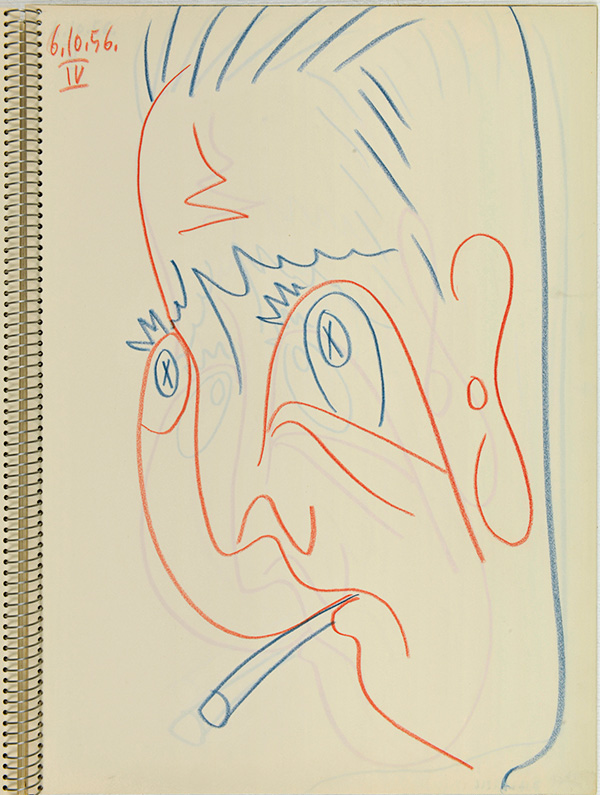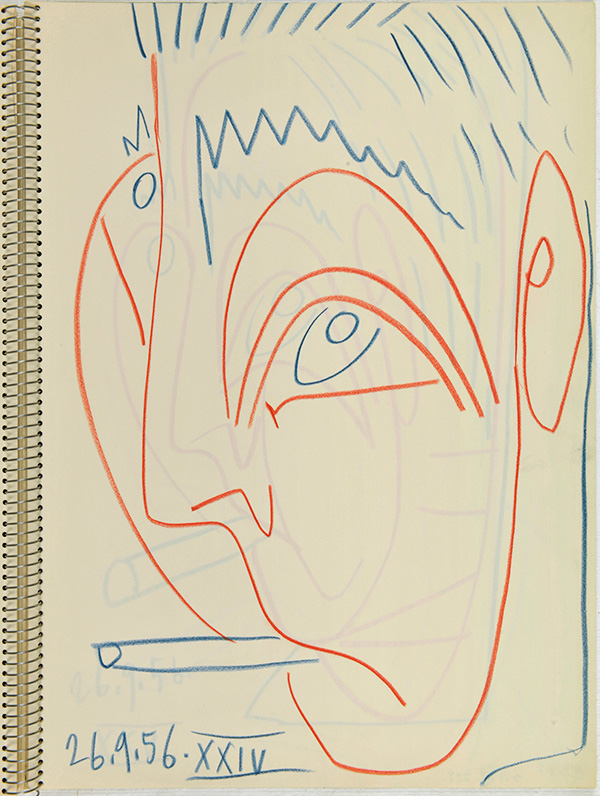An unabashed fascination for the creation of Picasso.
But Prévert was involved in one of the splits within the movement, that of early 1930. Together with Desnos, Queneau, Boiffard, Bataille, Morise, Ribemont-Dessaignes, Vitrac, Leiris, Limbour, Baron, and Carpentier, he was among the twelve writers of the violent pamphlet against André Breton titled Un cadavre. The title referred to the eponymous inflammatory leaflet that Breton and the Surrealists had printed six years earlier against Anatole France. Prévert launched a violent attack against Breton, whom he viewed as “living quite comfortably: to produce a single press release, he would keep to his room for a week.” This separation did not prevent them from resuming tentative relations after the war. “Prévert is very talented. I admire his verve, his great sense of humor, and I am very grateful to him for having found the right tone for challenging his times by confronting its taboos head-on,” wrote Breton in 1952 –adding, however, that “Prévert’s influence at the formal level has been disastrous.”[1]
In 1930, Prévert participated in a collective tribute to Picasso in the magazine Documents, edited by Georges Bataille, which included many of these dissidents (No. 3, “Hommage à Picasso”). His text, titled “Hommage-Hommage,” ironic in its tone, is a true defense of the artist’s right to question himself periodically. He makes fun of those who “rifle through the painter’s trash looking for new metaphors and the rose-colored harlequins from the meals of his youth.”
The text offers a dialogue between the Genius of Painting and Picasso:
“THE GENIUS (very pale). – Enough, Mister Picasso, you’re making my nose bleed!
PICASSO. – Indeed! (He punches him in the eye).
THE GENIUS. – What a life! Those were the days, when I used to come here with my pipe and my tobacco pouch and my mandolin and those girls rolling hoops, and the pasted papers, Mister Picasso, and our friends who’d come over at night, in their house slippers, to sip some of your bouillon-cube soup. What is the world coming to, sir, what is it coming to?
PICASSO. – If I felt like castrating you, I’d do so.”
Picasso liked it very much and met Prévert shortly thereafter.
[1] André Breton, Appendices to “Entretiens,” Œuvres complètes, volume III, Bibliothèque de la Pléiade, Paris, Gallimard, 1999, pp. 643-649.






 Summary
Summary